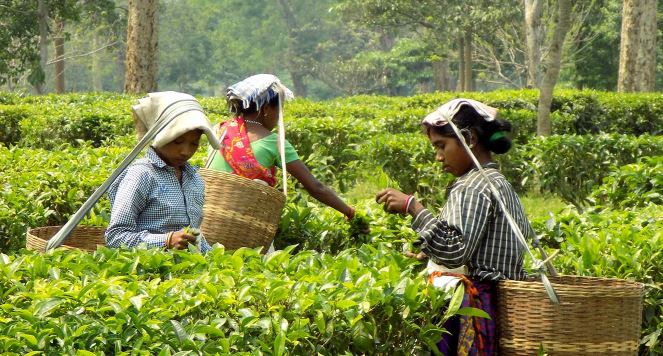Guwahati: The verdant tea gardens of Assam will soon provide more than just the brew that invigorates you in the morning.
Visitors will be treated to an immersive experience amid the rippling emerald slopes, where they can watch skilled hands plucking two leaves and a bud, with factories processing the raw leaves into the choicest of teas, as they sit back and relax while sipping on their cuppa.
The Assam government along with private entrepreneurs are exploring the potential of tea tourism in the state, the nascent measures undertaken for which have drawn a good response thus far.
Tourism is an important focus point for the state government and tea tourism is an avenue through which we can generate more revenue and provide employment opportunities, a top tourism department official, who wished not to be named, told PTI.
The state Budget for this fiscal has earmarked Rs 50 crore as capital infrastructure support for building guest houses and tourist facilities inside select tea gardens.
The guidelines for the scheme are being framed and are likely to be placed before the Cabinet by next week, the official said.
Rajan Lohia, the managing director of Manohari Tea Estate in Dibrugarh, said, We unveiled a resort inside our estate about two years back. The response from guests has been very positive.
The winters, which is the peak tourism season in the state, witnesses good footfalls. For the rest of the year, we have bookings mostly from companies whose executives are visiting these parts on official work and want an experience away from a typical hotel in the busy city, he added.
Concurring Lohia, Rakhi Dutta Saikia of Pabhojan Tea Estate in Golaghat said, The USP of any tea estate is its serene and peaceful atmosphere. Pabhojan, being an organic garden, we try to ensure that the stay here is rooted to the traditional way of life as far as possible.
The non-AC cottages at Pabhojan are a bigger draw than those fitted with cooling devices, she said.
Through tourism, we are also being able to generate revenue which is a relief for the tea estates as the industry is currently going through a phase of low cost realisation vis- -vis cost of production, Saikia explained.
She also pointed out that the resorts will be generating additional employment opportunities for the local community.
Visitors hire vehicles to move around; they are interested in buying local products. These lead to revenue earnings for the local community, Saikia added.
Supplementing the stay at the tea gardens with other recreational activities is crucial to draw more visitors, and the government is working on this aspect too.
The recreational activities have to be wisely planned to ensure that it complements the experience of staying in a tea estate. We have about 22 golf courses in different tea estates and are exploring ways to utilise them, the tourism department official said.
The Manohari Resort provide spa and gym facilities, while the Pabhojan Organic Tea Estate is coming up with a basic tea course’ for its visitors.
Saikia said, We want to give the visitors an understanding of how tea is manufactured, tasted and other such basic knowledge. We are working out a tea course’ of two-three days to add to the experience of their stay with us.
Accessibility can be a challenge in promoting tea tourism in the state and estates with advantage of location stand to have an edge over others.
Our estate is very close to the Mohanbari airport and Dibrugarh town. It is a major advantage for us and ensure round-the-year bookings, Lohia pointed.
Estates closer to tourist circuits are expected to attract more people, the official said.
We will be looking into this aspect while choosing beneficiaries for the tea tourism project, the official added.
Assam produces nearly 50 per cent of India’s total annual tea and has about 800 big and several thousand small tea gardens spread across the state.





